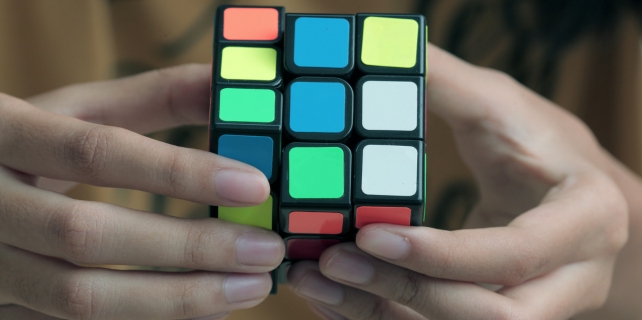The speed of the human brain's ability to process information has been investigated in a new study, and according to scientists, we're not as mentally quick as we might like to think.
In fact, research suggests our brains process information at a speed of just 10 bits per second. But how is this possible, in comparison to the trillions of operations computers can perform every second?
Research suggests this is the result of how we internally process thoughts in single file, making for a slow, congested queue.
This stands in stark contrast to the way the peripheral nervous system operates, amassing sensory data at gigabits a second in parallel, magnitudes higher than our paltry 10-bit cognitive computer.
To neurobiologists Jieyu Zheng and Markus Meister from the California Institute of Technology, this mismatch in sensory input and processing speed poses something of a mystery.
"Every moment, we are extracting just 10 bits from the trillion that our senses are taking in and using those 10 to perceive the world around us and make decisions," says Meister.
"This raises a paradox: What is the brain doing to filter all of this information?"
In their recently published paper, Zheng and Meister raise a clear defense of the suggestion that in spite of the richness of the scenery in our mind's eye, the existence of photographic memory, and the potential of unconscious processing, our brains really do operate at a mind-numbingly slow pace that rarely peaks above tens of bits a second.
According to the researchers, solving a Rubik's cube blindfolded requires processing of just under 12 bits a second. Playing the strategy computer game StarCraft at a professional level? Around 10 bits a second. Reading this article? That might stretch you to 50 bits a second, at least temporarily.
Assuming it's true, the pair lay out the state of research on the disparity between our "outer brain's" processing of external stimuli and the "inner brain's" calculations, demonstrating just how little we know about our own thinking.
"The current understanding is not commensurate with the enormous processing resources available, and we have seen no viable proposal for what would create a neural bottleneck that forces single-strand operation," the authors write.

The human brain is a beast when it comes to pure analytical power. Its 80-odd-billion neurons form trillions of connections grouped in ways that allow us to feel, imagine, and plan our way through existence with other humans by our sides.
Fruit flies, on the other hand, have maybe a hundred thousand or so neurons, which is plenty enough for them to find food, flap about, and talk fly-business with other flies. Why couldn't a single human brain behave like a swarm of flies, each unit processing a handful of bits each second collectively at super speed?
Though there are no obvious answers, Zheng and Meister propose it may simply have to do with necessity. Or rather, a lack of necessity.
"Our ancestors have chosen an ecological niche where the world is slow enough to make survival possible," the team writes.
"In fact, the 10 bits per second are needed only in worst-case situations, and most of the time our environment changes at a much more leisurely pace."
Research into comparable rates of processing in other species is remarkably limited, the pair explain, though what they could locate seems to validate a view that generally our external environment only changes at a rate that requires decision-making to occur at a few bits a second.
What might we make of a future where we demand more of our bottlenecked brains, perhaps through technological advances that link our single-file cognitive computing directly with a computer's parallel processing?
Knowing how our brains evolved could give us insights into both improving artificial intelligence and shaping it to suit our especially particular neural architecture. At the very least, it could reveal the deeper benefits of slowing down and approaching the world one simple question at a time.
This perspective was published in Neuron.
